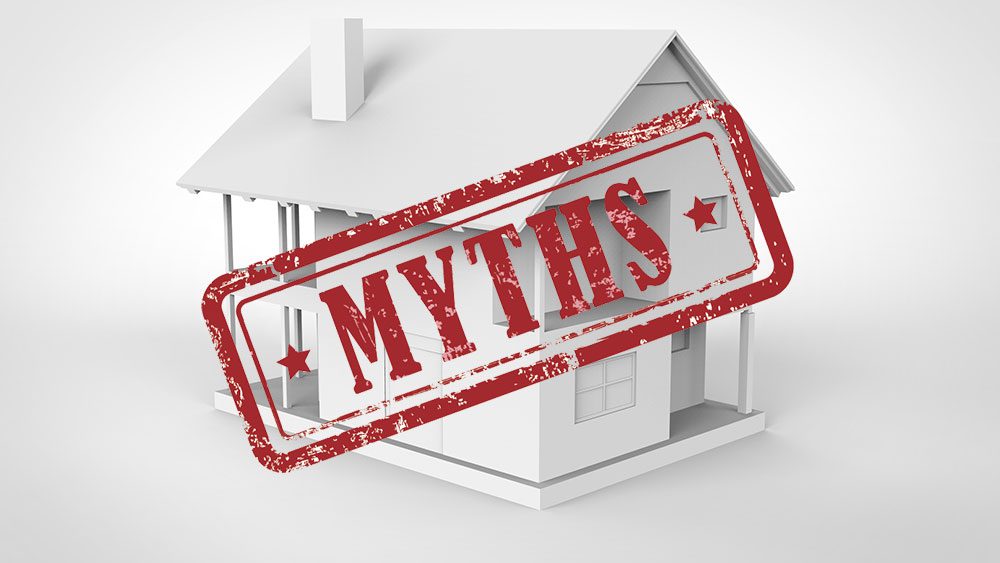In real estate, misinformation can be rampant, leading to poor decision-making, costly mistakes, or missed opportunities. Like in any other industry, real estate is laden with myths that can cloud judgment and influence decisions, particularly for first-time buyers or sellers.
From misconceptions about real estate agents to misunderstandings about home buying procedures and pricing, these myths can deter prospective buyers or homeowners from making informed decisions. This blog post aims to debunk some of the most prevalent myths in real estate.
Unveiling Myths About Real Estate Agents
Myth: All Agents Are The Same
This belief could not be further from the truth. All real estate agents bring unique skills, specialties, and experience levels. They each come with different personalities and work methods. For instance, some agents work in teams, whereas others are a one-stop shop for all your real estate needs.
Specific agents excel at educating buyers and sellers due to their teaching background, while others have a robust understanding of the legal aspects of transactions thanks to their law backgrounds. Some specialize in certain transactions—like those for first-time buyers or relocation—or specific areas. Hence, it’s essential to pick the right agent since they will represent you during one of the most significant transactions in your life.
Myth: Real Estate Agents Get Paid Big Money
While it might seem like real estate agents are making a lot of money from the commissions they receive on a sale, the truth is a bit more complicated.
Remember that real estate agents work on commission, meaning they only get paid when a deal closes. Moreover, the commission provided by the seller is split between the buyer and the seller’s agents and then again with their respective brokerages. This means a large chunk of an agent’s supposed income is often shared with others.
Also, don’t forget that agents have costs, such as marketing expenses, licensing fees, and taxes.
Myth: A Real Estate Agent Is a Waste of Money
This myth is incorrect and can potentially be financially detrimental. Unrepresented buyers often overpay, and sellers undersell because they do not fully understand their market or property’s intricacies. The added value a professional real estate agent brings, through their broad market knowledge and negotiating skills, can save—or make—you money in the long run.
An agent’s services are indispensable in numerous aspects of the buying or selling process: negotiating a fair price, providing access to the latest listings, giving professional input during home tours, and facilitating the closing process. Not to mention, buyer’s agent services are free for the buyer, as the agents’ commission comes from the sellers. This is why 88% of buyers opt to use a Realtor.
Busting Home Buying and Selling Beliefs
Myth: Springtime is House Hunting Season
Contrary to popular belief, spring isn’t the only opportune time to buy or sell a home. This misconception probably arises from many families who prefer moving during the spring or summer to avoid disrupting their children’s school schedule. However, according to Zillow, while late spring typically sees a surge in listings, winter also experiences a significant peak, particularly in Southern states.
Another important point to remember is that there are likely fewer buyers in the winter. Still, there is also a corresponding reduction in listings, leading to less competition for well-positioned properties. So, while there’s some truth to spring being a busy season for real estate, it’s certainly not the only time to embark on the homebuying or selling journey.
Myth: You’ll Recoup Remodeling and Home Improvement Costs When You Sell
As appealing as it might sound, not all remodeling or home improvement projects add equal value to your home. While some renovations can yield a total return or more on your investment, other expensive projects like adding a new primary bedroom suite might only recoup a fraction of the cost.
Moreover, investing heavily in renovations doesn’t guarantee a higher sale price, as the return rate averages just 64% of the initial outlay, according to Realtor.com. However, even if some updates don’t guarantee a dollar-for-dollar return, they often make a home more appealing and help it sell faster, which can be advantageous, especially in a hot market.
Myth: Setting a Low Price Means You’ll Make Less Money
This myth is debunked by the fact that a lower-priced home can sometimes attract more buyers. In a competitive market, this can lead to a bidding war among prospective buyers, possibly resulting in offers higher than the asking price.
According to the National Association of Realtors, this counter-intuitive pricing strategy could help you net more money from your sale. So, while it might seem like setting a higher price will bring in more money, that may not always be the case.
Exposing Procedural Misconceptions in Real Estate
Myth: Your Pre-approval Amount Will Be the Loan Amount You’re Approved For
The pre-approval process can give you an idea of how much mortgage you can borrow based on your financial history. However, the key word here is “might.” A pre-approval does not guarantee the final loan amount for a home.
The final approval of your loan amount depends on the appraisal of the property you wish to purchase. Even if you have a contract on a house for a specific price, it doesn’t mean the mortgage company will approve the loan amount for that sales price. If the property appraises for less than the sale price, the bank or lending institution may decline to fund the full amount. This is why you must prepare for the possibility of renegotiating the contract, coming up with extra funds out of pocket, or walking away from your dream home if it appraises too low.
Myth: You Need Perfect Credit to Buy a Home
While having a good credit score can make getting approved for a mortgage with a competitive interest rate easier, you don’t necessarily need perfect credit to become a homeowner.
Speaking to a lender about a potential mortgage will not ‘ding’ your credit, as many fear. The hard pull on your credit from a pre-approval has a minor impact on your score. Credit scoring models recognize prospective homeowners may shop for the best mortgage rates. Hence, multiple credit inquiries within a short span (up to two weeks) typically count as a single inquiry.
Furthermore, several loan programs are available to those with lower credit scores. For example, Federal Housing Administration (FHA) loans require a minimum credit score of just 580. On the other hand, you can qualify for some conventional mortgage programs with a credit score as low as 620. The degree of credit perfection demanded depends mainly on the mortgage product.
Myth: A Down Payment Is the Only Upfront Cost
While a down payment is certainly one of the largest upfront costs when buying a home, it is not the only one. There are several other upfront costs that buyers need to account for, including paying for a home inspection, termite inspection, and closing costs. These costs can add 3% to 6% to the purchase price.
Some expenses, like closing costs, could be negotiable, and you can ask the seller to shoulder them. Moreover, if you’re finding it difficult to pay these closing costs out-of-pocket, some mortgage products like Federal Housing Administration (FHA) loans allow some of these costs to be included in the loan. Therefore, while a down payment is the most visible upfront cost, do not forget to factor in these additional expenses when planning your budget.
Clearing Up Misinformation About Pricing
Myth: The Highest Price Is Always the Best Offer
Assuming that the highest price is always the best offer may seem intuitive. However, that is not always true. An offer with the highest price is not the best if you have to spend more than the difference to meet the buyer’s conditions.
For instance, if a buyer wants you to move out much sooner than you had planned, that could cause you to rent temporary storage, pay for a hotel room, and incur other costs that might make the higher offer not worth it.
Furthermore, an offer is not just about the price – it includes the entire package: terms, closing date, financial contingencies, and more. Hence, evaluating offers as a whole is crucial, looking closely at all factors, not just the price, to decide the best offer.
Myth: The Lowest Interest Rate is Always the Best Mortgage
While a low interest rate can certainly be an attractive mortgage feature, it should not be your sole determining factor. A mortgage with a very low interest rate may come with additional costs, such as high closing costs to buy points, or it might be an adjustable-rate mortgage, which means the rate can increase over time.
Also, it’s essential to bear in mind your specific circumstances, including how long you intend to keep the property, your tax situation, and possible upcoming changes in income. Evaluate all factors, including loan terms, lender reliability, and your financial context, to select the best mortgage.
Eclipsing False Perceptions about Property Type and Condition
Myth: Single-Family Homes Are More Affordable Than Multi-Family Dwellings
Contrary to this belief, buying a multi-family dwelling could be more cost-effective than purchasing a single-family home. The decision depends on how you plan to use the property.
While single-family homes sell at a lower rate, buyers have to shoulder the entire payment without any supplementary income from the property. On the other hand, multi-family homes provide the advantage of rental income. You can rent out the extra units you don’t live in, which can significantly help cover your mortgage payment.
For instance, purchasing a multi-family unit could increase your earnings and cover at least 50% of the monthly mortgage payment, making homeownership more affordable. Therefore, a multi-family home can be more cost-effective, depending on your circumstances and ambitions.
Myth: Buying a New Home Means Fewer Repairs in Years To Come
It seems intuitive to believe that a new home would have fewer maintenance issues than an older home. However, this is not always the case. New construction homes are often built quickly to maximize profits, sometimes resulting in lower-quality craftsmanship or overlooked construction details.
Unforeseen issues such as plumbing leaks, electrical problems, roofing defects, or drainage problems can arise regardless of a home’s age. Even a new home can have mistakes that have gone unnoticed or issues caused by rushed construction.
To counter these potential issues, homebuyers are strongly advised to hire an inspector specializing in new home construction to discover potential concerns. This way, any significant problems can be identified and fixed before closing on the new home.
Myth: If Your Home Isn’t in Great Condition, No One Will Buy It
While it’s true that homes in good condition can attract more prospective buyers, it’s a myth that a home in less-than-perfect shape won’t be purchased. A niche of real estate investors and professional home buyers specifically target homes in poor condition, requiring major updates or repairs.
These investors revamp the properties, flip them for a profit, or rent them out. So, consider selling the property to a professional home buyer if your home needs work. This can benefit sellers who don’t want to put more money into a property they’re selling or need to sell quickly.
Counteracting Untruths Surrounding School Districts and Inspections
Myth: School District is Irrelevant to Those Without Kids
School district quality isn’t something only those with kids need to pay attention to when buying a home. A common misconception is that saving money and settling in an area with average education standards might be better if you don’t have kids.
However, good school districts tend to hold their value better and offer more return on investment should you decide to sell your home later. They can make your property more attractive to future buyers, which is advantageous when it’s time to sell. Therefore, even if you don’t have kids, purchasing a home in a top-rated school district can be a smart investment.
Myth: You Don’t Need a Home Inspection
Skimping on a professional home inspection to save money is one of a buyer’s worst decisions. A professional home inspector brings a trained eye to the process and looks for more than 1,600 specific items in the home, helping you avoid potential issues that might be hiding behind cosmetic improvements.
If you skip this step, you might unknowingly inherit significant repair costs, ultimately making the home more expensive. Even if a property seemingly appears in excellent condition, it doesn’t mean there are no underlying problems that could drain your bank account soon.
Myth: If a Home Looks Great, There’s No Need for an Inspection
While a home may look visually appealing and seem in perfect condition, there could be hidden issues that are not immediately noticeable. No home is flawless, irrespective of its age or appearance.
Things like the roof’s condition, the electrical wiring, the plumbing, the foundation, and the presence of mold or pests are aspects of a home that may not be apparent visually but can cause significant problems and expenses down the line. Home inspections give you peace of mind and save you potentially high costs.
Closing Points
Navigating the real estate landscape can be a daunting experience, especially given the numerous myths that cloud judgment and decision-making. Remember that while these myths might appear to offer shortcuts, the truth often lies in the detailed dynamics of the industry and personal circumstances.
Always remember to separate fact from fiction regarding real estate myths. Doing so will help you make well-informed decisions and navigate the property market with improved confidence. This can lead to better financial outcomes and overall satisfaction with the buying or selling experience.
Remember, there’s no substitute for professional advice. Therefore, when in doubt, always consult with real estate professionals, financial advisors, and legal experts to ensure your choices align with your personal and financial goals.
© 2024 xpertRealtyMarketing.



